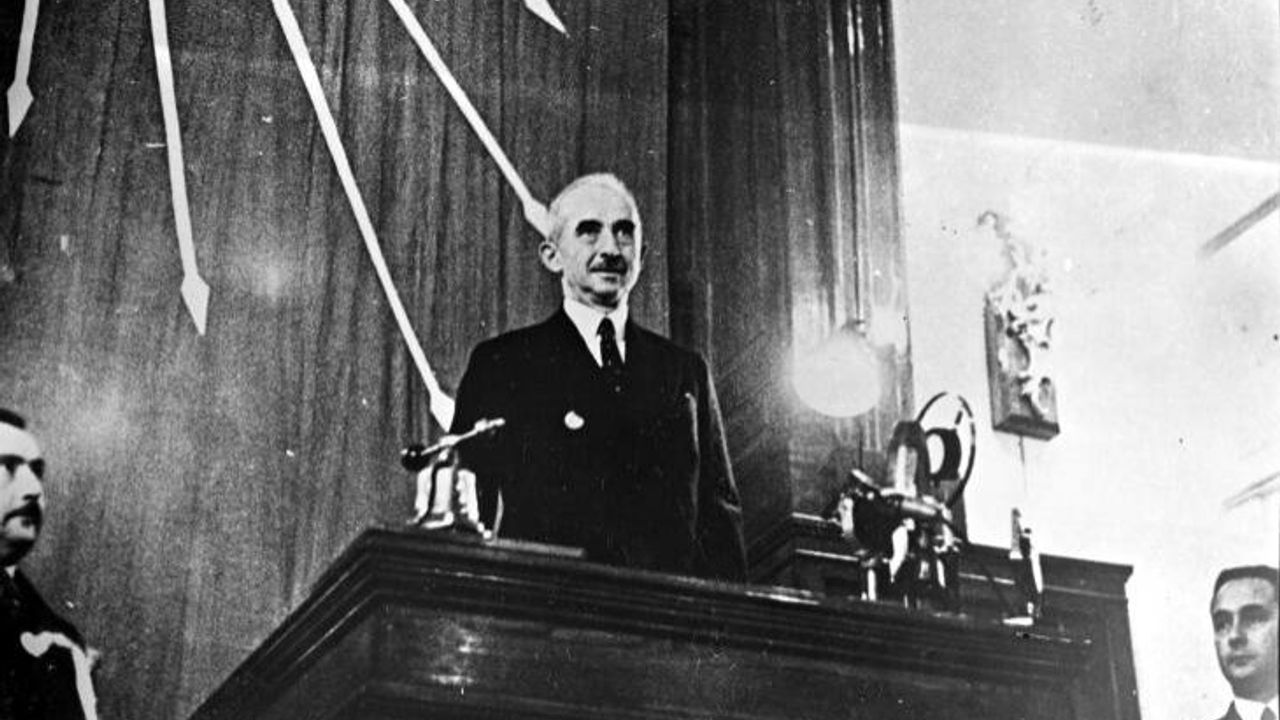İsmet İnönü, a name synonymous with Turkish politics and leadership, left an indelible mark on the history of modern Turkey. As we delve into the life of İsmet İnönü, we will uncover the multifaceted journey of a man who played a pivotal role in shaping the nation's destiny. From his early years to his political career and lasting legacy, this article will provide a comprehensive insight into İsmet İnönü's life and contributions.
İsmet İnönü: The Early Years
In this section, we will explore İnönü's formative years, shedding light on his upbringing, education, and early experiences that shaped his character.
Family Background
Born on September 24, 1884, in Smyrna (now İzmir), İsmet İnönü hailed from a modest family of civil servants. His humble beginnings instilled in him a strong work ethic and a sense of responsibility towards his country.
Education and Military Service
İnönü's academic pursuits led him to the Ottoman Military Academy, where he received a solid foundation in military strategy and leadership. His dedication and aptitude propelled him to excel in his military career, eventually rising through the ranks.
İsmet İnönü: The Military Strategist
In this section, we will delve into İnönü's remarkable military career and his pivotal role in the Turkish War of Independence.
Leadership in the War of Independence
During the Turkish War of Independence (1919-1923), İnönü emerged as a key military leader alongside Mustafa Kemal Atatürk. His strategic acumen and unwavering commitment to the cause played a crucial role in the victory against occupying forces.
The Treaty of Lausanne
İnönü's diplomatic skills came to the forefront during the negotiations leading to the Treaty of Lausanne (1923). His ability to secure favorable terms for Turkey marked a turning point in the nation's history, solidifying his reputation as a skilled diplomat.
İsmet İnönü: The Political Journey
Transitioning from the military to politics, İnönü embarked on a new chapter in his life. This section will trace his political career and the significant milestones along the way.
Founding of the Republic
Following the establishment of the Republic of Turkey in 1923, İnönü played a crucial role in the early years of the nation. He served as the country's first Prime Minister and later as its second President.
The Single-Party Period
Under İnönü's leadership, the Republican People's Party (CHP) dominated Turkish politics during the single-party period. His policies aimed at modernizing and secularizing the country, setting the stage for its transformation.
Transition to Multiparty Politics
As Turkey transitioned to multiparty politics in the 1950s, İnönü adapted to the changing landscape. He remained a central figure, leading the CHP and engaging in political dialogue.
İsmet İnönü: Legacy and Influence
In this section, we will examine İnönü's enduring legacy and the impact he left on Turkey's political and social fabric.
Contributions to Turkish Democracy
İnönü's commitment to democracy and pluralism paved the way for Turkey's political evolution. His willingness to engage with opposition parties and ensure a peaceful transition of power left an indelible mark on the nation's political culture.
Social Reforms and Modernization
Throughout his career, İnönü championed social reforms, including women's rights and education. His efforts to modernize Turkish society contributed to the nation's progress.
İsmet İnönü: A Symbol of Continuity
İnönü's ability to provide continuity and stability during tumultuous times earned him the nickname "Millî Şef" (National Chief). His leadership provided a sense of security and cohesion to the nation.
FAQs (Frequently Asked Questions)
What is İsmet İnönü best known for?
İsmet İnönü is best known for his leadership during the Turkish War of Independence and his role in the founding and early years of the Republic of Turkey.
How did İsmet İnönü contribute to Turkish democracy?
İnönü contributed to Turkish democracy by promoting pluralism, engaging with opposition parties, and ensuring a peaceful transition of power.
What social reforms were championed by İsmet İnönü?
İsmet İnönü championed social reforms, including advancements in women's rights and education, contributing to the modernization of Turkish society.
What is the significance of the Treaty of Lausanne in İsmet İnönü's career?
The Treaty of Lausanne marked a diplomatic triumph for İnönü, securing favorable terms for Turkey and solidifying his reputation as a skilled diplomat.
How did İsmet İnönü adapt to multiparty politics in Turkey?
İnönü adapted to multiparty politics by leading the Republican People's Party (CHP) and engaging in political dialogue during the transition.
Why is İsmet İnönü referred to as "Millî Şef"?
İsmet İnönü is referred to as "Millî Şef" due to his role in providing continuity and stability during challenging periods in Turkish history.

















